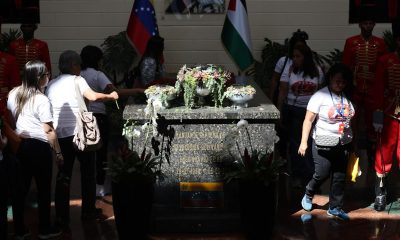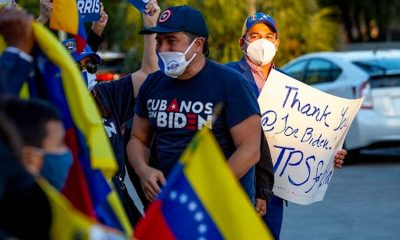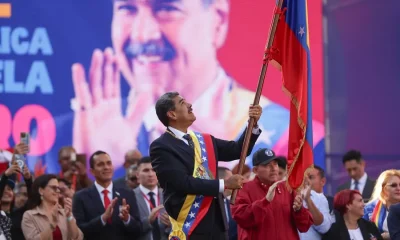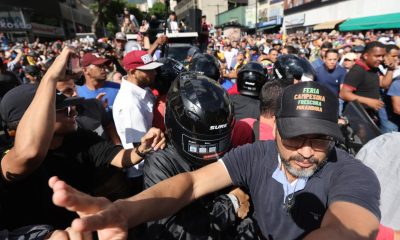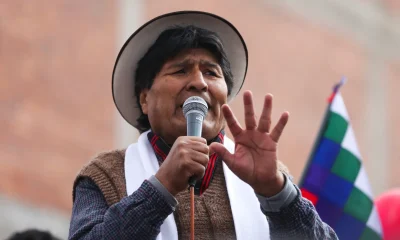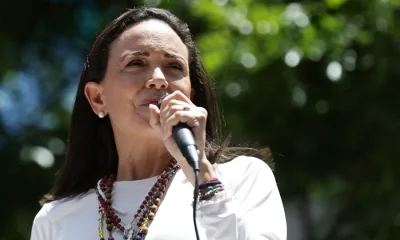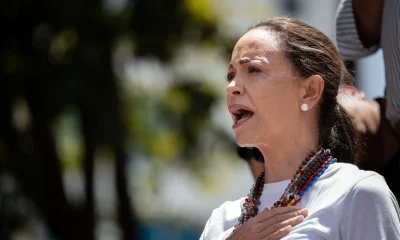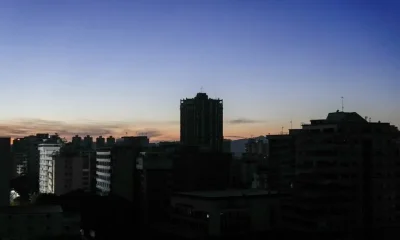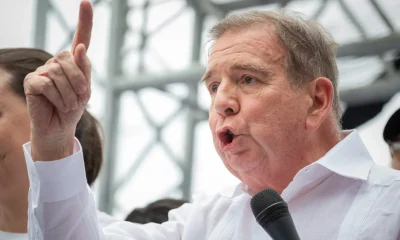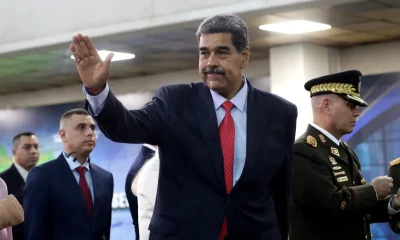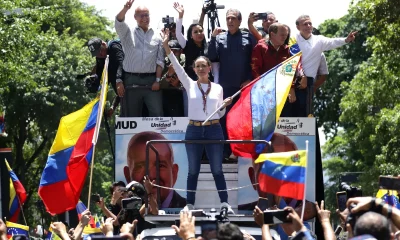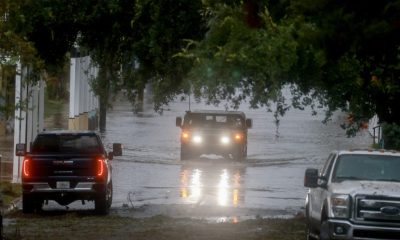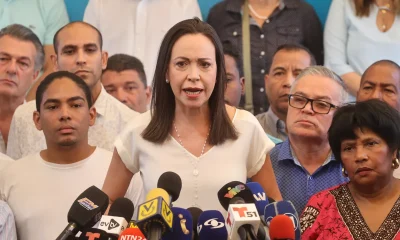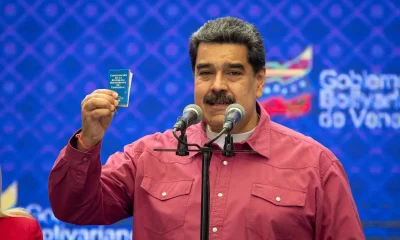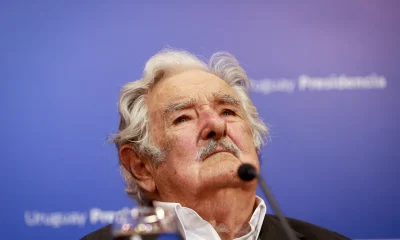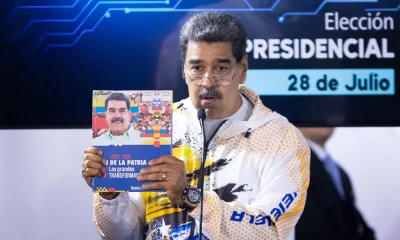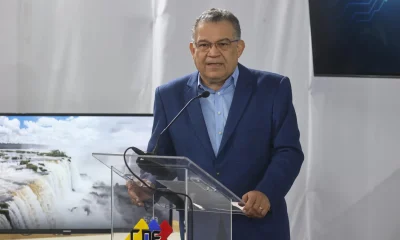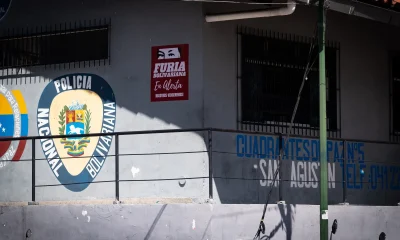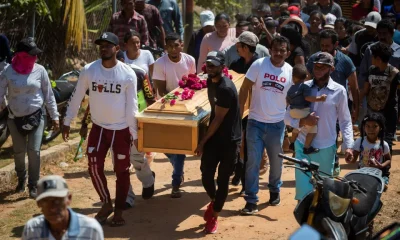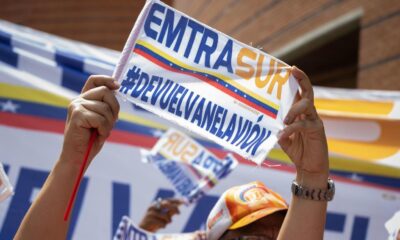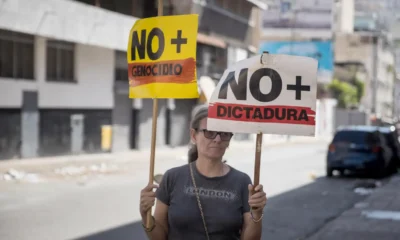International
Decision on future of Venezuela’s opposition ‘government’ postponed
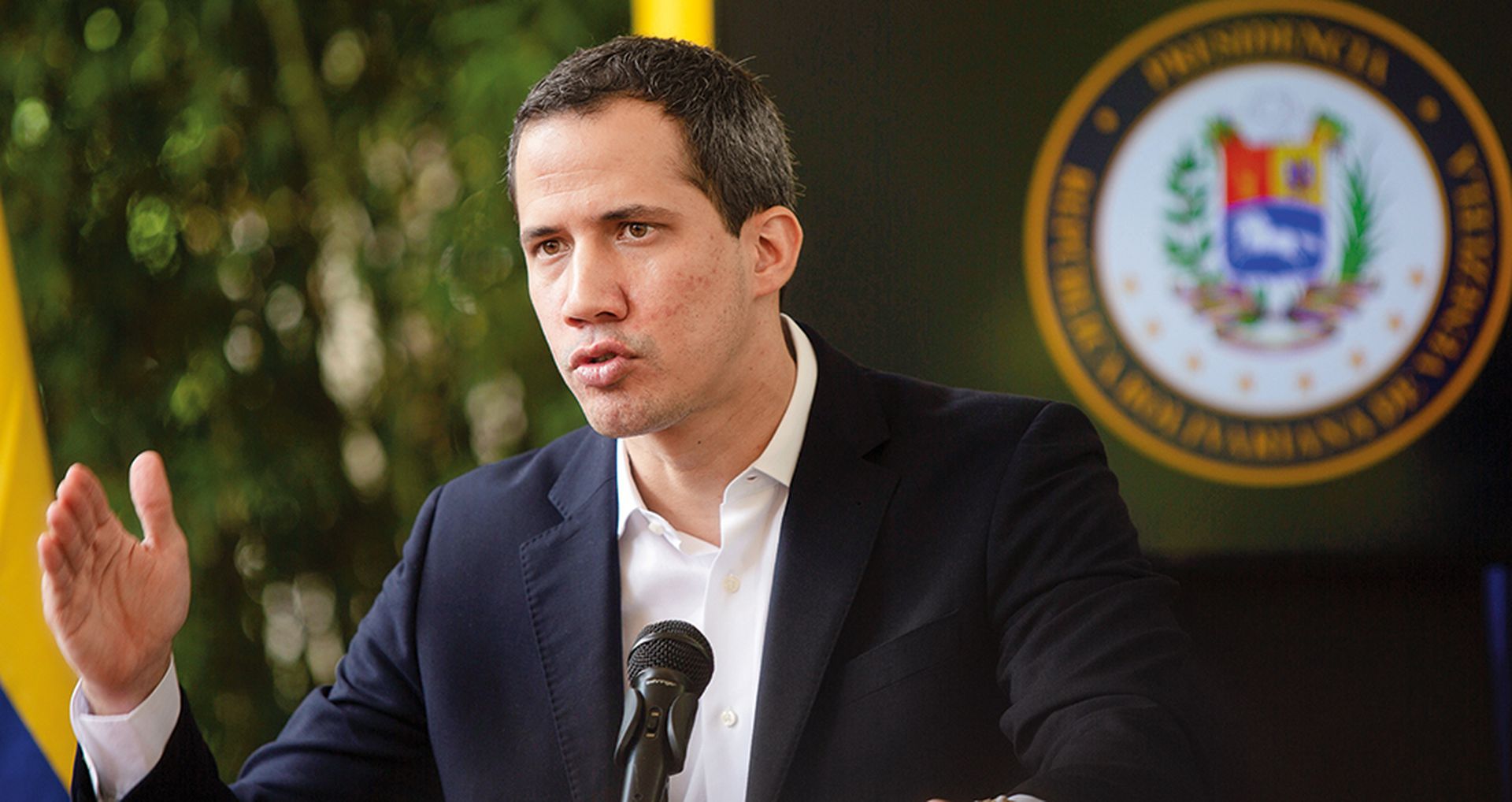
| By AFP |
Venezuelan opposition leader Juan Guaido on Wednesday postponed to January 3 a decision on whether his “interim government” should be dissolved over its failure to dislodge President Nicolas Maduro from power.
The decision on Guaido’s future was set for Thursday, but the 39-year-old opposition figure announced the delay on Twitter.
“I assume (as president of the ‘interim government’) the deferral of the session in pursuit of the defense of the constitution and (to get) the necessary unity in favor of an agreement,” Guaido tweeted.
Almost four years ago, Guaido won the recognition of more than 50 nations as the legitimate ruler of Venezuela, after widely disputed elections that kept Maduro in power.
But while the opposition holds the purse strings to some of Venezuela’s assets abroad, Guaido’s failure to find a strategy to oust Maduro has caused his public support to plummet.
His international backing has also weakened. The United States, the opposition’s most significant ally, has sought rapprochement with Maduro in the midst of the oil crisis caused by sanctions against Russia for invading Ukraine.
Some Latin American countries — including Brazil, Colombia and Argentina — have also recently elected leftist leaders in a pink wave.
In Venezuela, some opposition factions did not want to delay the vote on Guaido’s future but acceded to requests to debate further, even as they warned that bickering weakened them.
“Let us exhaust the path of consensus,” said Juan Pablo Guanipa, member of Justice First, one of the four opposition parties proposing to put an end to the “interim government.”
“If something favors the dictator Maduro, it is our fractures and our division,” he said.
Guanipa’s party, together with the Democratic Action, A New Time and Movement for Venezuela parties, said that they had not been consulted on postponing the session.
In order to decide the fate of the “interim government,” the 2015 parliament — currently with 104 members — must hold two votes.
Last Thursday, a first debate was held in which two proposals came up for a vote: one to end Guaido’s presidency as of January 5, which received 72 votes, and another that would extend it for another year, which had 23.
There were nine abstentions.
Guaido’s Popular Will party says ending his “interim government” would allow Maduro to regain control of Venezuelan resources blocked abroad by sanctions.
The opposition plans to hold primaries in 2023 to elect a single candidate to face Maduro in the next presidential elections, scheduled for 2024. Guaido is among the possible candidates.
International
U.S. Senate Rejects Budget, Bringing Government Closer to Shutdown Amid DHS Dispute

The U.S. Senate voted on Thursday against a budget proposal in a move aimed at pressuring changes at the Department of Homeland Security (DHS), following the killing of two civilians during a deployment of immigration agents in Minneapolis.
All Senate Democrats and seven Republican lawmakers voted against the bill, which requires 60 votes to advance, pushing the country closer to a partial government shutdown that would cut funding for several agencies, including the Pentagon and the Department of Health.
The rejection came as Senate leaders and the White House continue negotiations on a separate funding package for DHS that would allow reforms to the agency. Proposed measures include banning Immigration and Customs Enforcement (ICE) agents from wearing face coverings and requiring them to use body-worn cameras during operations.
The vote took place just hours after President Donald Trump said he was “close” to reaching an agreement with Democrats and did not believe the federal government would face another shutdown, following last year’s record stoppage.
“I don’t think the Democrats want a shutdown either, so we’ll work in a bipartisan way to avoid it. Hopefully, there will be no government shutdown. We’re working on that right now,” Trump said during a Cabinet meeting at the White House.
International
Trump Says Putin Agreed to One-Week Halt in Attacks on Ukraine Amid Extreme Cold

U.S. President Donald Trump said on Thursday that he secured a commitment from Russian President Vladimir Putinto halt attacks against Ukraine for one week, citing extreme weather conditions affecting the region.
“Because of the extreme cold (…) I personally asked Putin not to attack Kyiv or other cities and towns for a week. And he agreed. He was very pleasant,” Trump said during a Cabinet meeting broadcast by the White House.
Trump acknowledged that several advisers had questioned the decision to make the call.
“A lot of people told me not to waste the call because they wouldn’t agree. And he accepted. And we’re very happy they did, because they don’t need missiles hitting their towns and cities,” the president said.
According to Trump, Ukrainian authorities reacted with surprise to the announcement but welcomed the possibility of a temporary ceasefire.
“It’s extraordinarily cold, record cold (…) They say they’ve never experienced cold like this,” he added.
Ukrainian President Volodymyr Zelensky later commented on the announcement, expressing hope that the agreement would be honored.
International
Storm Kristin Kills Five in Portugal, Leaves Nearly 500,000 Without Power

Storm Kristin, which battered Portugal with heavy rain and strong winds early Wednesday, has left at least five people dead, while nearly half a million residents remained without electricity as of Thursday, according to updated figures from authorities.
The revised death toll was confirmed to AFP by a spokesperson for the National Emergency and Civil Protection Authority (ANPEC). On Wednesday, the agency had reported four fatalities.
Meanwhile, E-Redes, the country’s electricity distribution network operator, said that around 450,000 customers were still without power, particularly in central Portugal.
Emergency services responded to approximately 1,500 incidents between midnight and 8:00 a.m. local time on Wednesday, as the storm caused widespread disruptions.
The Portuguese government described Kristin as an “extreme weather event” that inflicted significant damage across several regions of the country. At the height of the storm, as many as 850,000 households and institutions lost electricity during the early hours of Wednesday.
Several municipalities ordered the closure of schools, many of which remained shut on Thursday due to ongoing adverse conditions.
Ricardo Costa, regional deputy commander of the Leiria Fire Brigade, said residents continue to seek assistance as rainfall persists.
“Even though the rain is not extremely intense, it is causing extensive damage to homes,” he noted.
In Figueira da Foz, a coastal city in central Portugal, strong winds toppled a giant Ferris wheel, underscoring the severity of the storm.
-

 International3 days ago
International3 days agoU.S. Senate Rejects Budget, Bringing Government Closer to Shutdown Amid DHS Dispute
-

 International4 days ago
International4 days agoFootball Fan Killed in Clashes After Colombian League Match
-

 Central America4 days ago
Central America4 days agoGuatemala President Says Starlink Terminal Found Inside Prison
-

 International4 days ago
International4 days agoRubio Says U.S. Could Participate in Follow-Up Russia-Ukraine Talks
-

 International4 days ago
International4 days agoMissing Spanish Sailor Rescued After 11 Days Adrift in Mediterranean
-

 Central America2 days ago
Central America2 days agoPanama Supreme Court Strikes Down Panama Ports Concession as Unconstitutional
-

 International3 days ago
International3 days agoStorm Kristin Kills Five in Portugal, Leaves Nearly 500,000 Without Power
-

 Central America2 days ago
Central America2 days agoU.S. and Guatemala Sign Trade Deal Granting Zero Tariffs to Most Exports
-

 International3 days ago
International3 days agoMan Arrested After Vehicle Crashes Into Jewish Institution in Brooklyn
-

 International3 days ago
International3 days agoTrump Says Putin Agreed to One-Week Halt in Attacks on Ukraine Amid Extreme Cold
-

 Central America3 hours ago
Central America3 hours agoCosta Rica Goes to the Polls as Voters Choose Continuity or Change





























